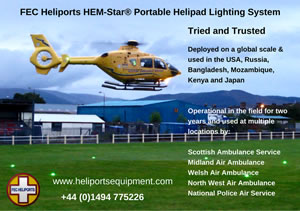World Customs Organization2006-08-14 09:09:53
Tobacco and cigarette smuggling remain a growing global problem.
The 2005 annual report from the World Customs Organization on Customs and Tobacco demonstrates that tobacco and cigarette smuggling remain a growing global problem. Concern is also increasing among members of the international Customs and law enforcement communities that trans-national criminal organizations involved in this illegal trade may be linked to international terrorism.
During 2004/2005 the following trends and statistics prevailed:
Smuggling of cigarettes - Seizures of illicit consignments of cigarettes exceeding 100,000 numbered 1,067 in 2004 and 1,184 in 2005 which translates into 2,548 million pieces and 2,194 million pieces respectively. Cigarette smuggling maintains a global range but the European region still dominates the scene and accounts for approximately 85% of the global figures both in terms of the number of seizures and the quantity reported. The substantial increase in the number of seizures and related quantities particularly in the Eastern and Central European region are remarkable.
Counterfeit cigarettes - The Asia Pacific region is still the main source of supply for undeclared counterfeit cigarettes but more and more illegal factories are, however, being dismantled in the European region. In most cases, counterfeit cigarettes are concealed by making use of a cover load consisting mainly of poor quality goods. Analyses indicate that timber, glass sheets and paper roll consignments are the most favourite form of cover loads used by smugglers to conceal their contraband. As the trade in counterfeit cigarette tax labels increases, the WCO has initiated a project to collect cigarette tax stamps for the purpose of creating a reference database to assist Customs administrations to distinguish between genuine and fake tax labels at borders.
Legal production of cigarettes - Global cigarette production for 2004 was 5,531 billion pieces with an expected decrease of 2.3%. China is still the largest cigarette-producing country in the world, accounting for 32.4% of the global figures followed by the United States and the Russian Federation. Together these countries account for 15.8% of the total global production figures. Europe is the largest exporter zone followed by Asia. Together they account for 76% of global exports.
Compared to last year, increases in seizures have been noted while smuggling routes continue to diversify in an effort to avoid detection by Customs and others. Seizures of raw tobacco or leaf tobacco, as well as forged tobacco stamps, have increased which tends to suggest the expansion of the illegal production of cigarettes. More and more illicit manufacturers of cigarettes have been discovered, particularly in Europe.
Customs administrations will continue to cooperate and coordinate their activities world-wide both at the national and the international level in an effort to combat this lucrative illicit trade.
WCO Report "Customs and Tobacco 2005� is available on request.
The 2005 annual report from the World Customs Organization on Customs and Tobacco demonstrates that tobacco and cigarette smuggling remain a growing global problem. Concern is also increasing among members of the international Customs and law enforcement communities that trans-national criminal organizations involved in this illegal trade may be linked to international terrorism.
During 2004/2005 the following trends and statistics prevailed:
Smuggling of cigarettes - Seizures of illicit consignments of cigarettes exceeding 100,000 numbered 1,067 in 2004 and 1,184 in 2005 which translates into 2,548 million pieces and 2,194 million pieces respectively. Cigarette smuggling maintains a global range but the European region still dominates the scene and accounts for approximately 85% of the global figures both in terms of the number of seizures and the quantity reported. The substantial increase in the number of seizures and related quantities particularly in the Eastern and Central European region are remarkable.
Counterfeit cigarettes - The Asia Pacific region is still the main source of supply for undeclared counterfeit cigarettes but more and more illegal factories are, however, being dismantled in the European region. In most cases, counterfeit cigarettes are concealed by making use of a cover load consisting mainly of poor quality goods. Analyses indicate that timber, glass sheets and paper roll consignments are the most favourite form of cover loads used by smugglers to conceal their contraband. As the trade in counterfeit cigarette tax labels increases, the WCO has initiated a project to collect cigarette tax stamps for the purpose of creating a reference database to assist Customs administrations to distinguish between genuine and fake tax labels at borders.
Legal production of cigarettes - Global cigarette production for 2004 was 5,531 billion pieces with an expected decrease of 2.3%. China is still the largest cigarette-producing country in the world, accounting for 32.4% of the global figures followed by the United States and the Russian Federation. Together these countries account for 15.8% of the total global production figures. Europe is the largest exporter zone followed by Asia. Together they account for 76% of global exports.
Compared to last year, increases in seizures have been noted while smuggling routes continue to diversify in an effort to avoid detection by Customs and others. Seizures of raw tobacco or leaf tobacco, as well as forged tobacco stamps, have increased which tends to suggest the expansion of the illegal production of cigarettes. More and more illicit manufacturers of cigarettes have been discovered, particularly in Europe.
Customs administrations will continue to cooperate and coordinate their activities world-wide both at the national and the international level in an effort to combat this lucrative illicit trade.
WCO Report "Customs and Tobacco 2005� is available on request.
For more information contact:
30, Rue Du Marché
B-1210 BRUSSELS
Belgium
Tel: +32 2 209 92 11
Fax: +32 2 209 92 92
